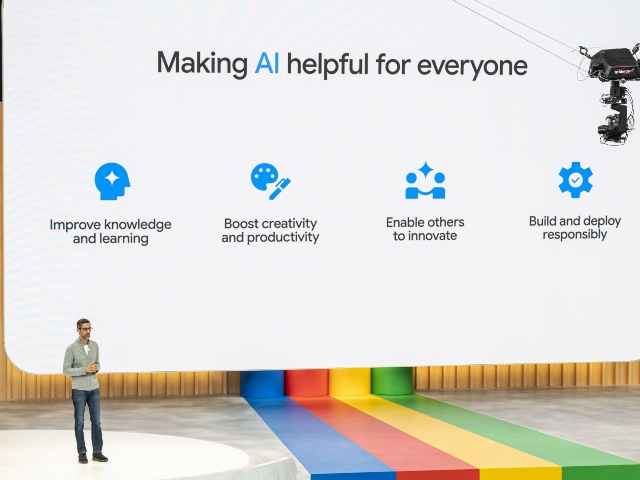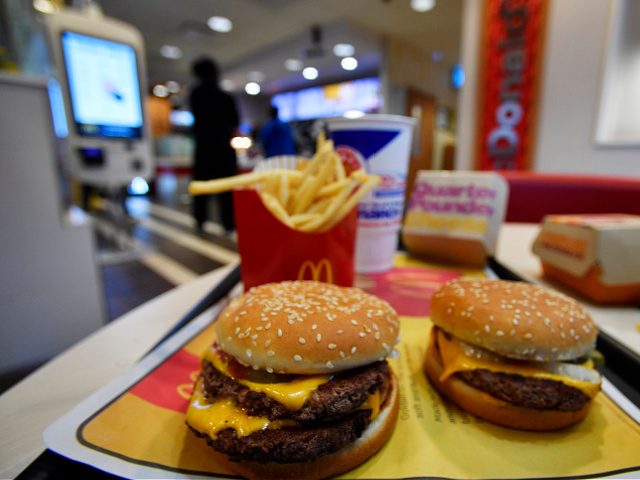McDonald’s is set to partner with Google, implementing generative AI technologies to optimize its food service operations and deliver “hotter, fresher food.” Google, which has based its entire company on surveillance capitalism, is likely quite keen to learn about customer habits in the restaurant.
The Verge reports that McDonald’s recently announced a collaboration with Google to deploy generative AI in thousands of its stores. This technological integration involves both hardware and software upgrades, including enhancements to McDonald’s ordering kiosks and mobile app. The primary goal of this partnership is to leverage AI for analyzing vast amounts of operational data, leading to tangible improvements in service quality. A key expected outcome, as highlighted by McDonald’s, is the delivery of “hotter, fresher food” to customers.

Sundar Pichai, chief executive officer of Alphabet Inc., during the Google I/O Developers Conference in Mountain View, California, US, on Wednesday, May 10, 2023. Photographer: David Paul Morris/Bloomberg
The details of how AI will specifically improve food service are not entirely clear, but the partnership indicates a significant step towards more AI-driven automation in the fast-food industry. This AI integration will function both in-store through hardware and software upgrades and via services provided through Google Cloud. Managers will benefit from this system, which is designed to promptly identify and resolve business disruptions.
While McDonald’s has not detailed the extent of AI’s role in potentially replacing human workers, they emphasize its utility in simplifying operations for store crews and enhancing customer and crew experiences. This move is similar to initiatives by other fast-food chains, like Wendy’s, who have also started experimenting with AI, albeit on a smaller scale.
McDonald’s broader strategy includes the deployment of a new “bespoke” operating system aimed at unifying the customer experience across its mobile app and store kiosks. The overall changes are expected to facilitate more informed decisions and automated solutions, enhancing restaurant operations. However, some worry that this introduction of AI may result in replacing some human workers with automation, similar to the introduction of self-service ordering kiosks.
Inevitably, as with every product involving Google, data collected and analyzed by the system will likely be used by the company to generate profits in different ways.
Read more at the Verge here.
Lucas Nolan is a reporter for Breitbart News covering issues of free speech and online censorship.

COMMENTS
Please let us know if you're having issues with commenting.